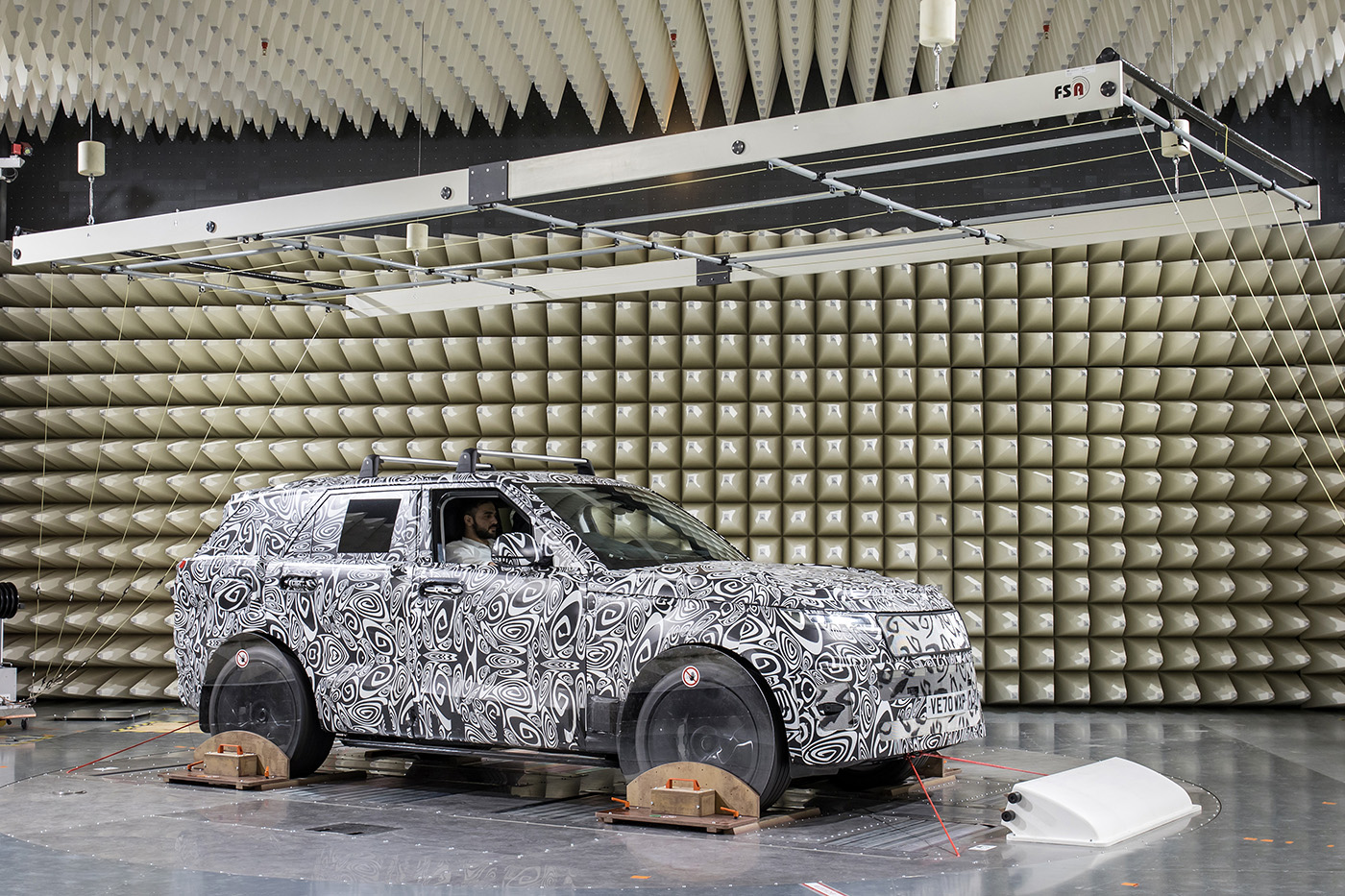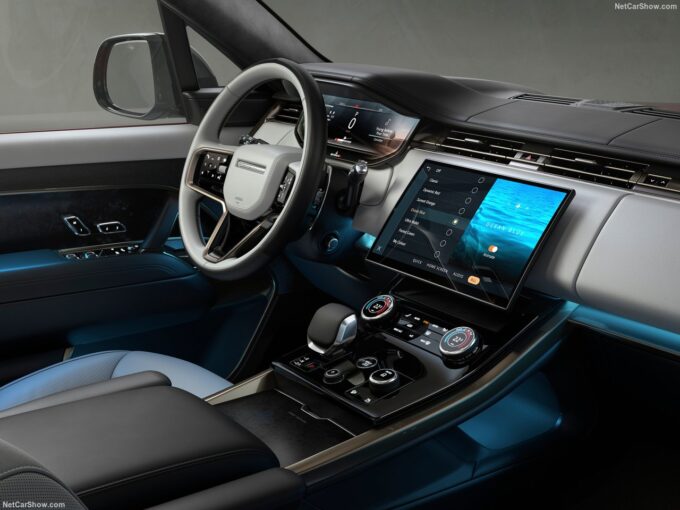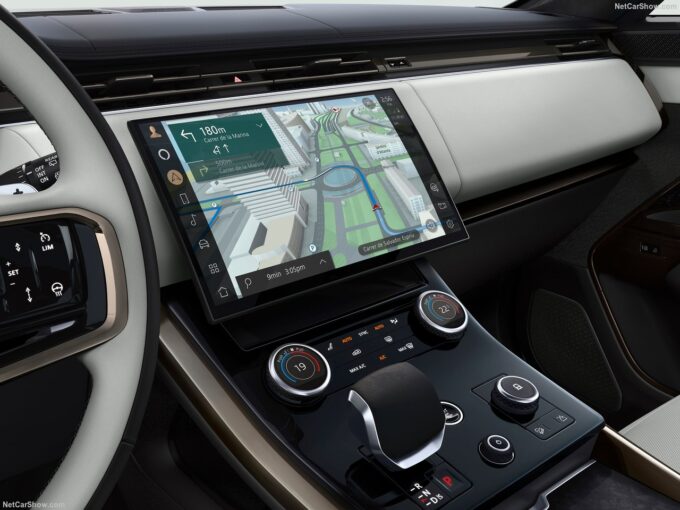Land Rover: Please do not disturb! 🎥
SUCCESSFUL TESTS Jaguar Land Rover is taking the next step on the road to electrification and connectivity of its model range by opening a laboratory to test electromagnetic compatibility.
The EMC (Electromagnetic Compatibility) laboratory, located in the Gaydon R&D center, is designed to ensure compliance with all current and future legislation and quality standards relating to connectivity and electronics.
The new Range Rover Sport, unveiled in May, was the first model to successfully pass a series of tests tailored to these requirements at the company's in-house testing facility.

Ensuring trouble-free functions
Electromagnetic compatibility (EMC) is steadily gaining importance in the era of increasing electrification. It refers to the ability of electrical devices and systems to function faultlessly in their electromagnetic environment. This is done by limiting the unintentional generation, propagation and reception of electromagnetic energy to minimize the risk of interference.
The new EMC lab has two anechoic chambers. Inside, there is an electrically driven rolling road on which engineers can test vehicles at speed. There is also measuring equipment to evaluate the performance of individual components such as batteries or electric motors.
Important vehicle services and functions
Bluetooth, GPS, WiFi, 4G, 5G, adaptive cruise control, wireless charging or blind spot warning are all examples of vehicle services and functions that can be tested for electromagnetic compatibility in the new laboratory.
With the rapidly growing range of electric vehicles and the ever-widening spectrum of digital and cloud-based services, electromagnetic compatibility testing is crucial for quality as well as regulatory compliance.












